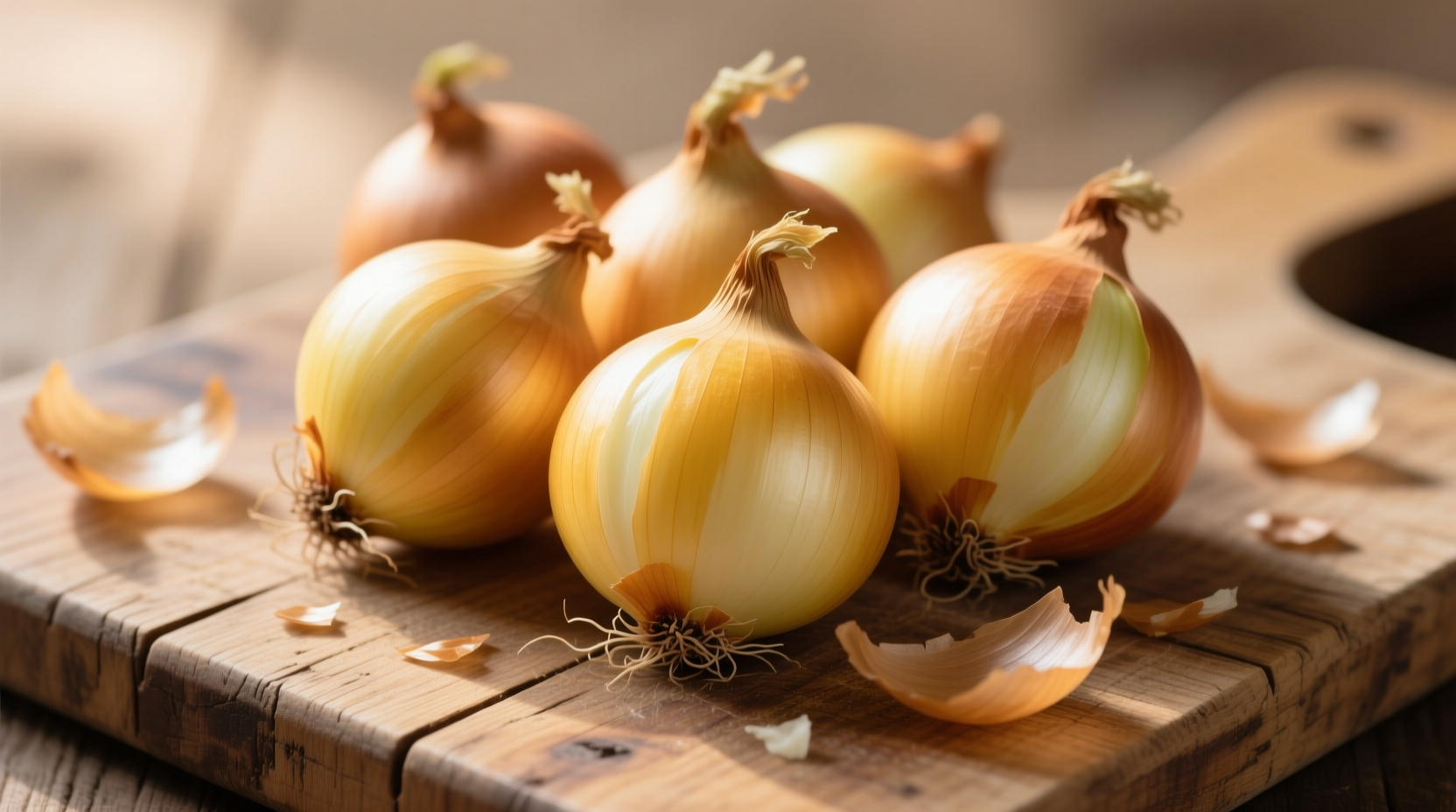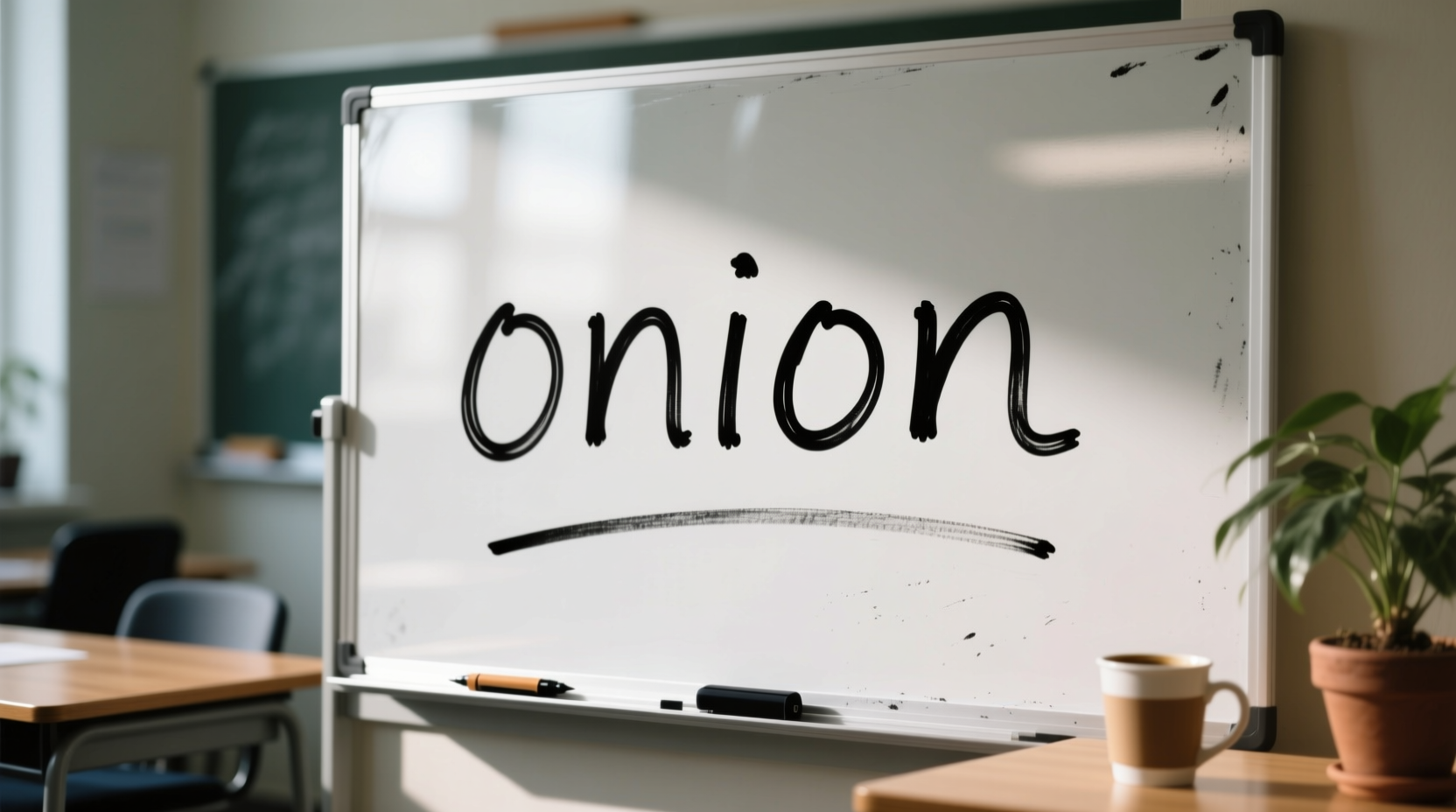The correct spelling of the word is o-n-i-o-n. This six-letter word refers to the common edible bulb vegetable used in cuisines worldwide. Get it right the first time with this definitive guide to spelling, pronunciation, and common mistakes to avoid.
Spelling "onion" correctly matters whether you're writing a recipe, grocery list, or academic paper. This seemingly simple word trips up many English learners and native speakers alike. Let's explore everything you need to know about spelling this essential culinary ingredient properly.
Why "Onion" Gets Misspelled So Often
The word "onion" presents a common spelling challenge because its pronunciation doesn't perfectly match its spelling. Many people hear the "uh-nee-un" sound and mistakenly add extra letters. The silent "o" at the beginning and the double "n" at the end create particular confusion.
| Common Misspellings | Why It's Wrong | Correct Spelling |
|---|---|---|
| Onionn | Double "n" at the end is incorrect | Onion |
| Onin | Missing the second "o" | Onion |
| Onyone | Incorrect vowel placement | Onion |
| Union | Completely different word | Onion |
Onion Spelling Through History
The word "onion" has evolved significantly over centuries. Understanding this timeline helps explain why the spelling seems counterintuitive today:
- Pre-14th century: The word originated from the Latin "unio," meaning "single" or "unity," referring to the single bulb
- 14th-16th century: Middle English used "unyoun," "onyn," and "oneion" as the word transformed
- 16th century: "Onion" became standardized in English spelling as we know it today
- Modern usage: The spelling remains consistent across English-speaking countries despite pronunciation variations
According to etymological research from the Online Etymology Dictionary, the "o-" prefix was added in Middle English by folk etymology, mistakenly associating it with the word "one." This historical quirk explains why the spelling doesn't perfectly match the pronunciation.

Mastering Onion Pronunciation
Knowing how to spell "onion" correctly goes hand-in-hand with understanding its pronunciation. The standard pronunciation is /ˈʌn.jən/ (uhn-yuhn), with three distinct syllables:
- First syllable: "uhn" (like the "u" in "under")
- Second syllable: "yuh" (a soft "y" sound)
- Third syllable: "nuhn" (ending with a soft "n" sound)
Regional accents may slightly alter the pronunciation, but the spelling remains consistent across all English dialects. This spelling stability makes "onion" a reliable word to learn early in English language studies.
Practical Usage Examples
Seeing "onion" used correctly in context reinforces proper spelling. Here are everyday examples:
- "Please chop one medium onion for the soup recipe."
- "The chef caramelized the onion slowly over low heat."
- "Red onion adds a beautiful color to salads."
- "I'm allergic to raw onion but can eat it when cooked."
Notice how the word functions as both singular and plural ("one onion" vs. "two onions") without changing spelling except for the added "s" in plural form.
Spelling Tips You Can Use Immediately
Here are practical techniques to remember the correct spelling of "onion":
- The "O" trick: Remember that onions make you cry, so think "O" for "oh no, I'm crying!"
- Syllable breakdown: Split it as "o-ni-on" (not "o-nee-un")
- Memory phrase: "Only Nine Is Onions" (O-N-I-O-N-S)
- Visualize: Picture the layers of an onion matching the layers of letters in the word
These simple strategies help cement the correct spelling in your memory for everyday use.
When Spelling Matters Most
Correct spelling of "onion" becomes particularly important in these contexts:
- Professional cooking and recipe writing
- Academic papers about food science or nutrition
- Menu creation for restaurants
- Food product labeling and packaging
- Language learning materials
Mistakes in these professional contexts can undermine credibility, which is why understanding the proper spelling of common food terms like "onion" matters more than many realize.
Common Questions About Spelling "Onion"
Even after learning the correct spelling, certain questions frequently arise:
- "Is there ever a double 'n' at the end?" No, the correct spelling always ends with a single 'n'.
- "Does the spelling change in British English?" No, "onion" is spelled the same in all English variants.
- "Why isn't it spelled like it sounds?" English spelling often preserves historical roots rather than matching pronunciation exactly.











 浙公网安备
33010002000092号
浙公网安备
33010002000092号 浙B2-20120091-4
浙B2-20120091-4